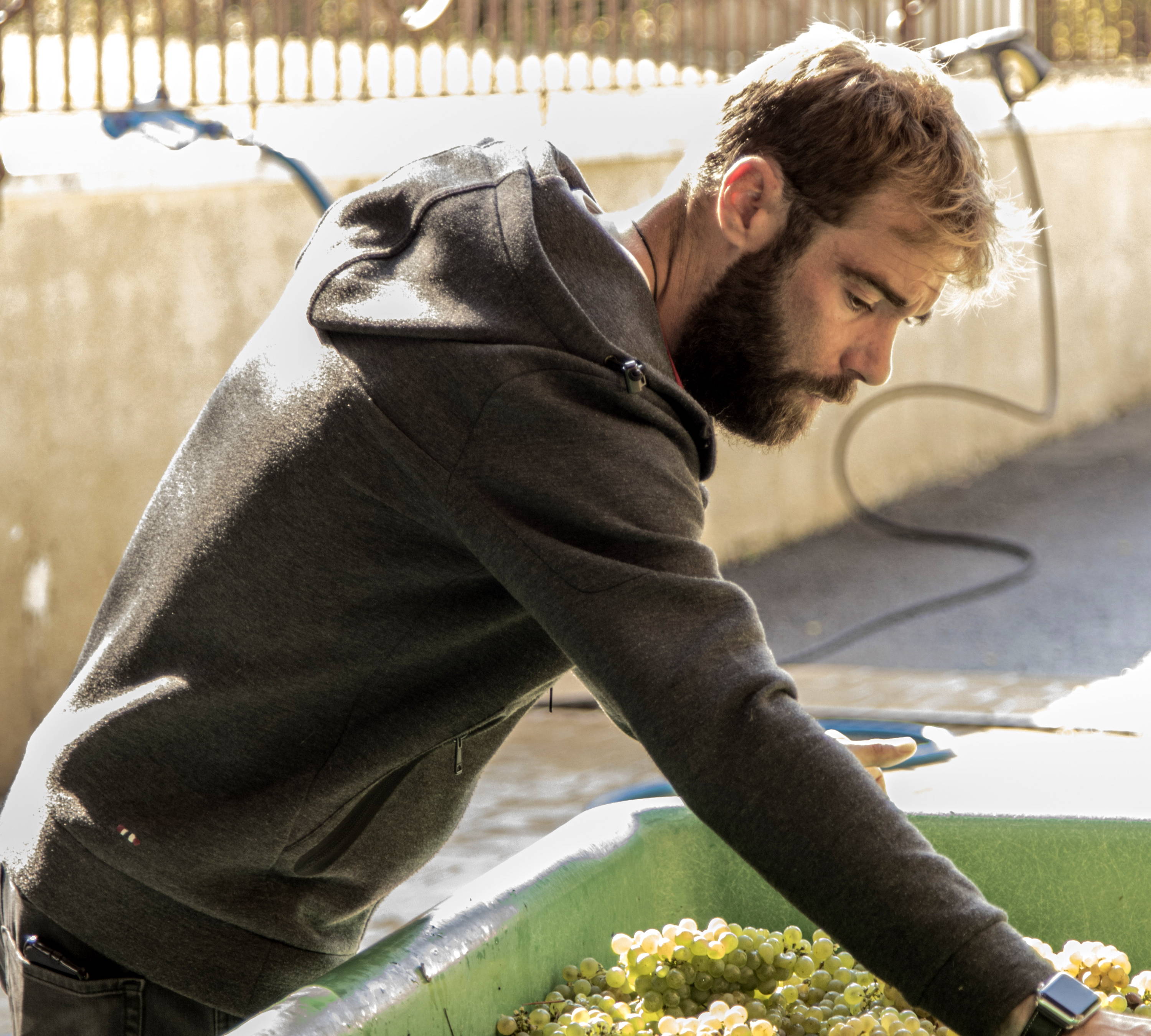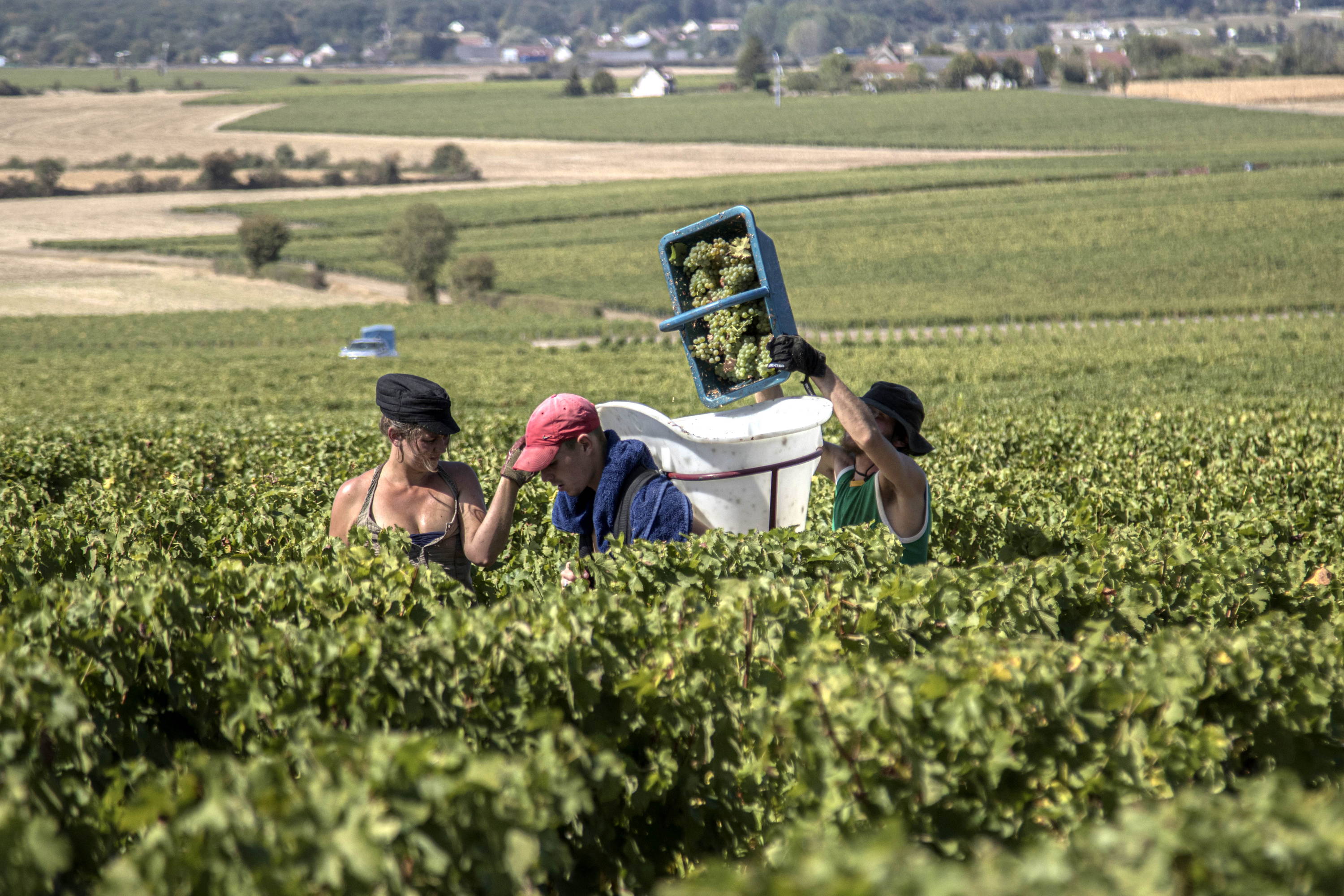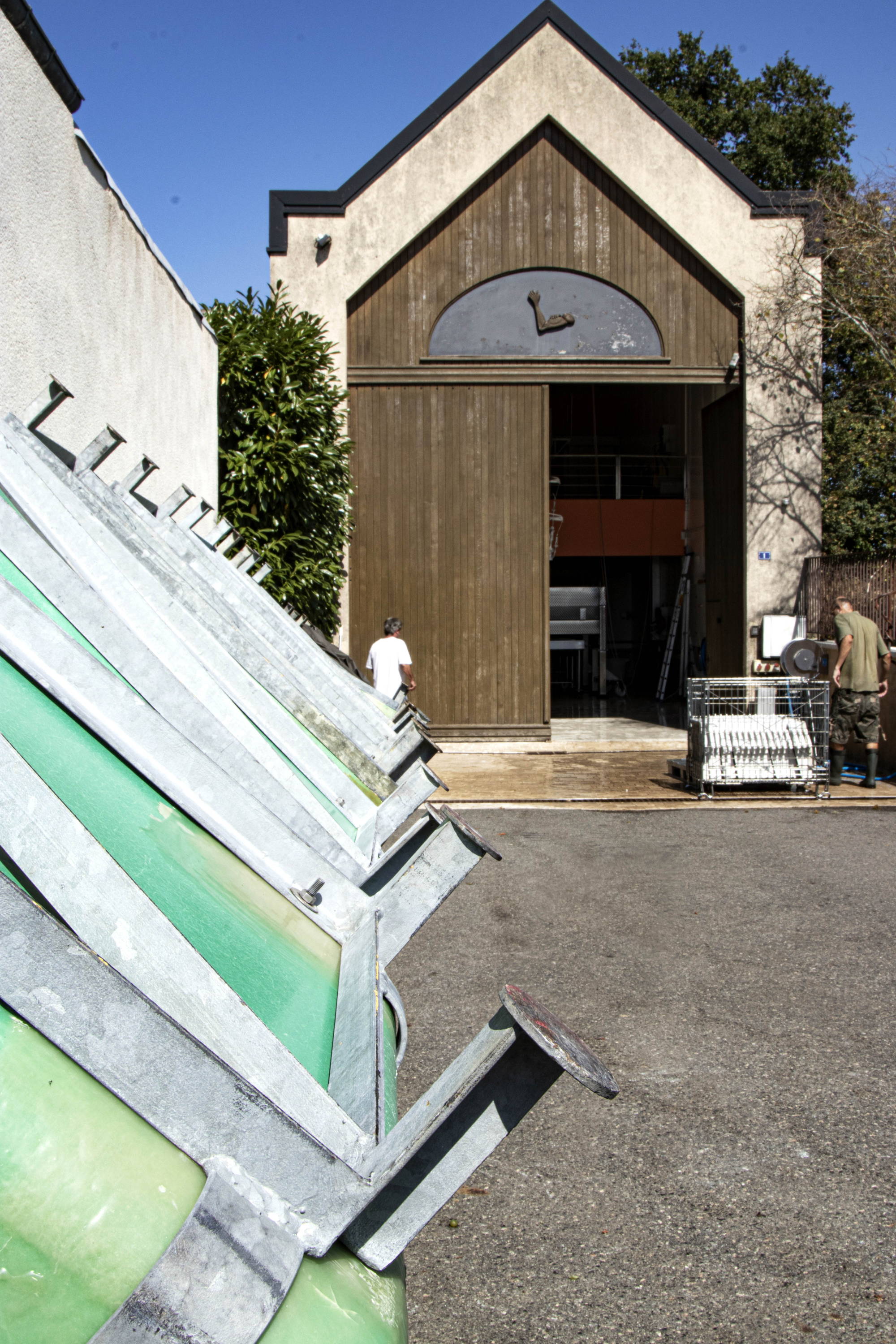DOMAINE DIDIER DAGUENEAU
Louis-Benjamin Dagueneau

Based in the little village of Saint-Andelain in the heart of Pouilly - Fumé appellations, Domaine Didier Dagueneau has been producing some of the finest wines in the world for decades.
After a first career racing motorcycle sidecars, in 1982, Didier Dagueneau returned to his hometown to set up his own estate in Pouilly-Fumé rather than joining the family estate. Inspired by the great wines of his mentor Edmond Vatan as well as Henri Jayer, Dagueneau was one of the first growers of the appellation to experiment single-vineyard wines. In 1982 he first acquired 1.2 hectares of En Chailloux, then Silex in 1985 and Pur Sang in 1988.
Based in the little village of Saint-Andelain in the heart of Pouilly - Fumé appellations, Domaine Didier Dagueneau has been producing some of the finest wines in the world for decades.
After a first career racing motorcycle sidecars, in 1982, Didier Dagueneau returned to his hometown to set up his own estate in Pouilly-Fumé rather than joining the family estate. Inspired by the great wines of his mentor Edmond Vatan as well as Henri Jayer, Dagueneau was one of the first growers of the appellation to experiment single-vineyard wines. In 1982 he first acquired 1.2 hectares of En Chailloux, then Silex in 1985 and Pur Sang in 1988.


Always pushing boundaries further, Dagueneau is described as a risk-taker experimenting organic farming, no SO2 winemaking, ungrafted vineyards, natural yeast fermentation…
Dagueneau rigorous farming practices allowed him to seriously reduce yields to achieve greater ripeness raising his wine to legends.
In the late ’90s under the advice of Edmond Vatan, Dagueneau was able to purchase an uncultivated plot of Mont Damné, fueled by his courage and determination, Didier turned it into a vineyard in no time. Later in 2002, he acquired a vineyard in Jurançon that will become Les Jardins de Babylone.
Didier tragically passed away in 2008 in a lightplane crash just before the harvest. Dagueneau was survived by his son Louis-Benjamin and his daughter Charlotte. Louis-Benjamin was already working alongside his father in the vineyards and cellar, he then naturally stepped in and took over the management of the Domaine.

Always pushing boundaries further, Dagueneau is described as a risk-taker experimenting organic farming, no SO2 winemaking, ungrafted vineyards, natural yeast fermentation…
Dagueneau rigorous farming practices allowed him to seriously reduce yields to achieve greater ripeness raising his wine to legends.
In the late ’90s under the advice of Edmond Vatan, Dagueneau was able to purchase an uncultivated plot of Mont Damné, fueled by his courage and determination, Didier turned it into a vineyard in no time. Later in 2002, he acquired a vineyard in Jurançon that will become Les Jardins de Babylone.
Didier tragically passed away in 2008 in a lightplane crash just before the harvest. Dagueneau was survived by his son Louis-Benjamin and his daughter Charlotte. Louis-Benjamin was already working alongside his father in the vineyards and cellar, he then naturally stepped in and took over the management of the Domaine.
Didier is gone, but Louis Benjamin manages to keep the winemaking spirit of his father animated by the same rigorous state of mind. Vineyards are meticulously worked by a crew equal to about one person per hectare, yields are kept very low with 30hl/ha on average.
Grapes are pressed fully destemmed in order to gain space in the press and also because Louis Benjamin doesn’t find any benefit to leave stems. Wine spend 24h in stainless steel vat for debourbage before being transferred to barrels only keeping fine lees. Fermentation is made in barrels using selected yeast from Dagueneau’s vineyard. Different formats are used for ageing, either cigars, small foudres with more or less new oak, Louis-Benjamin even experimented ageing Silex in an egg shape barrel as well as a glass bowl. Wines spend over a year in oak, and then they are transferred to tank and held “en mass” for seven months before bottling.
Following critics accusing Dagueneau’s wine of not fitting into the appellation standard, since 2017 vintage, Louis-Benjamin has decided to leave the Pouilly-Fume appellation and sell his wine exclusively under Vin de France appellation. While Dagueneau wines can be drunk young, they will definitely benefit from extensive ageing in the cellar.


Didier is gone, but Louis Benjamin manages to keep the winemaking spirit of his father animated by the same rigorous state of mind. Vineyards are meticulously worked by a crew equal to about one person per hectare, yields are kept very low with 30hl/ha on average.
Grapes are pressed fully destemmed in order to gain space in the press and also because Louis Benjamin doesn’t find any benefit to leave stems. Wine spend 24h in stainless steel vat for debourbage before being transferred to barrels only keeping fine lees. Fermentation is made in barrels using selected yeast from Dagueneau’s vineyard. Different formats are used for ageing, either cigars, small foudres with more or less new oak, Louis-Benjamin even experimented ageing Silex in an egg shape barrel as well as a glass bowl. Wines spend over a year in oak, and then they are transferred to tank and held “en mass” for seven months before bottling.
Following critics accusing Dagueneau’s wine of not fitting into the appellation standard, since 2017 vintage, Louis-Benjamin has decided to leave the Pouilly-Fume appellation and sell his wine exclusively under Vin de France appellation. While Dagueneau wines can be drunk young, they will definitely benefit from extensive ageing in the cellar.
REGION OF PRODUCTION
Loire Valley
APPELLATION
Pouilly-Fumé, Jurançon, Sancerre
FOUNDED
1982
VINEYARD
Pouilly-Fumé: 12 ha, Jurançon: 3 ha
CLIMATE
Temperate oceanic
SOIL COMPOSITION
Limestone & Clay, Flint
VARIETIES GROWN
Sauvignon blanc
AGRICULTURE
Organic
WINES OF THE DOMAIN
PRE-ORDER
Be the first in Singapore to access the exceptional wines of Didier Dagueneau.
Pre-order now and enjoy 15% off at checkout.
























